Plot summary
A postgraduate student writing a thesis on the French writer Paul Michel starts a relationship with the Germanist, a girl he meets in the library, at Cambridge University. She encourages him to look at his biography more closely rather than only focus solely on the texts. They have dinner with her father; later in London he meets Jacques Martel, a friend of her father's who knows Paul Michel. He then decides to move to Paris to find him, and reads his letters to Michel Foucault in the library. He finds out Paul Michel lives in an asylum in Clermont-Ferrand. He arrives there at night and finds accommodation in Romagnat. He starts meeting with Paul Michel. Soon enough, they are allowed to spend whole days out in the gardens. Eventually, they manage to winkle a day outside of the premises. Michel gets attacked by a man in a bar and fights back. He then kisses the protagonist. Michel manages to trick the restaurant into believing they are with the town mayor and thus get off without being reported for the fight. Paul Michel is later granted two months away from the madhouse since the protagonist's visits have improved his condition considerably. The protagonist drives him down to Nice, where they stay with an old friend of his, Alain Legras, and his wife. During their stay they finally become lovers when Michel reassures the protagonist he needn't worry about his virtue and the protagonist argues asking if his opinion on the matter doesn't count. While the protagonist wants Michel to start writing again as part of his "recovery" Michel is, like the Germanist predicted, unable to do so because Foucault, his reader, is dead. Michel tells him about his relationship with Michel Foucault and claims that their relationship cannot last, that the protagonist must go on to write his thesis about him. Eventually, Michel gets up one night, takes the car and he kills himself, under the influence of drugs and alcohol. Although it is clear to all it was intentional.
After the funeral, the protagonist returns to England, writes his thesis and becomes the foremost expert on Paul Michel's writing, but fails to expand on the writer's life. His relationship with the Germanist, who flew to France to help him after the accident and got him through the funeral, ends after that, even though they move in similar academic circles.

Paul-Michel Foucault was a French historian of ideas and philosopher who also served as an author, literary critic, political activist, and teacher. Foucault's theories primarily addressed the relationships between power versus knowledge and liberty, and he analyzed how they are used as a form of social control through multiple institutions. Though often cited as a structuralist and postmodernist, Foucault rejected these labels and sought to critique authority without limits on himself. His thought has influenced academics within a large number of contrasting areas of study, with this especially including those working in anthropology, communication studies, criminology, cultural studies, feminism, literary theory, psychology, and sociology. His efforts against homophobia and racial prejudice as well as against other ideological doctrines have also shaped research into critical theory and Marxism–Leninism alongside other topics.
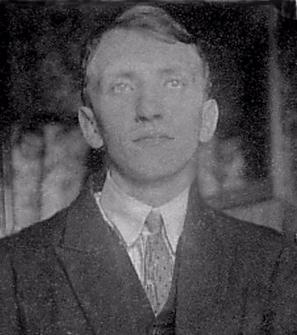
Maurice Blanchot was a French writer, philosopher and literary theorist. His work, exploring a philosophy of death alongside poetic theories of meaning and sense, bore significant influence on post-structuralist philosophers such as Gilles Deleuze, Michel Foucault, Jacques Derrida and Jean-Luc Nancy.

Laurent-Moïse Schwartz was a French mathematician. He pioneered the theory of distributions, which gives a well-defined meaning to objects such as the Dirac delta function. He was awarded the Fields Medal in 1950 for his work on the theory of distributions. For several years he taught at the École polytechnique.
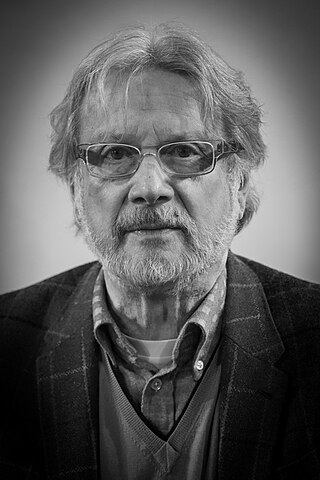
Daniel Defert was a French sociologist and HIV/AIDS activist. Partner to the late Michel Foucault, Defert co-founded France's first AIDS advocacy group, AIDES, following Foucault's death from complications related to the disease. Defert was the heir to Foucault's estate.
Bernadette Bourzai is a French politician and Member of the Senate of France representing the Department of Corrèze.
Whatever is the debut novel of French writer Michel Houellebecq. The plot concerns a depressed and isolated computer programmer who tries to convince a colleague to murder a young woman who rejected the colleague's sexual advances. A major theme is that the sexual revolution of the 1960s extended capitalism to the sexual market, creating an unattractive sexual underclass. It was adapted into the 1999 film Whatever, directed by and starring Philippe Harel.
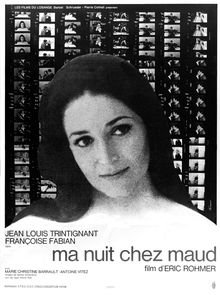
My Night at Maud's, also known as My Night with Maud (UK), is a 1969 French New Wave drama film by Éric Rohmer. It is the third film in his series of Six Moral Tales.
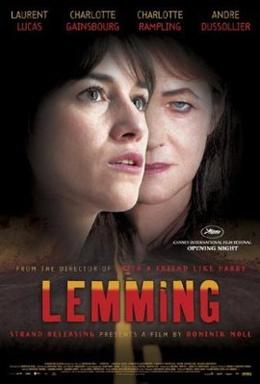
Lemming is a 2005 French psychological thriller film directed by Dominik Moll and starring André Dussollier, Charlotte Rampling, Charlotte Gainsbourg and Laurent Lucas. It was entered into the 2005 Cannes Film Festival.
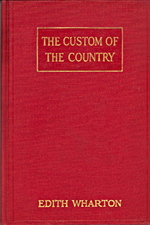
The Custom of the Country is a 1913 tragicomedy of manners novel by the American author Edith Wharton. It tells the story of Undine Spragg, a Midwestern girl who attempts to ascend in New York City society.

The Fire Within is a 1963 drama film written and directed by Louis Malle. It is based on the 1931 novel Will O' the Wisp by Pierre Drieu La Rochelle, which was inspired by the life of poet Jacques Rigaut. The film stars Maurice Ronet and features Léna Skerla, Jean-Paul Moulinot, Bernard Tiphaine, Bernard Noël, Jeanne Moreau, Jacques Sereys, and Alexandra Stewart in supporting roles. The score consists of music composed by Erik Satie and performed by pianist Claude Helffer.

Élisabeth Roudinesco is a French scholar, historian and psychoanalyst. She conducts a seminar on the history of psychoanalysis at the École Normale Supérieure.

When I Was a Singer is a 2006 French musical romantic drama film starring Gérard Depardieu and Cécile de France. It was written and directed by Xavier Giannoli.
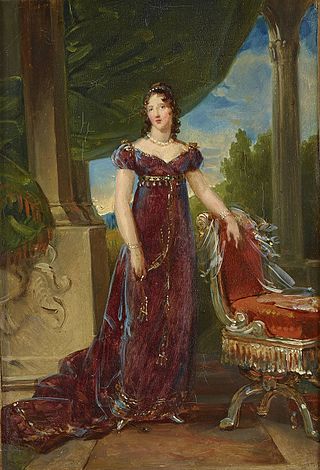
Dorothea von Biron, Princess of Courland, Duchess of Dino, Duchess of Talleyrand and Duchess of Sagan, known as Dorothée de Courlande or Dorothée de Dino, was a Baltic German noblewoman, and the ruling Duchess of Sagan between 1845 and 1862. Her mother was Dorothea von Medem, Duchess of Courland, and although her mother's husband, Duke Peter von Biron, acknowledged her as his own, her true father may have been the Polish statesman Count Aleksander Batowski. For a long time, she accompanied the French statesman Charles Maurice de Talleyrand-Périgord; she was the separated wife of his nephew, Edmond de Talleyrand-Périgord.
Richard Paternoster was an English civil servant in the East India Company, a barrister and the founder of the Alleged Lunatics' Friend Society, an organisation that exposed abuses in lunatic asylums and campaigned for the reform of the lunacy laws.

La Piscine is a 1969 psychological thriller film directed by Jacques Deray, starring Alain Delon, Romy Schneider, Maurice Ronet, and Jane Birkin.

Le Diable et les Dix Commandements is a French film from 1962 directed by Julien Duvivier that consists of seven sketches played by an ensemble cast that includes Michel Simon, Micheline Presle, Françoise Arnoul, Mel Ferrer, Charles Aznavour, Lino Ventura, Fernandel, Alain Delon, Danielle Darrieux, Jean-Claude Brialy, and Louis de Funès.
Claude Michy, born 3 April 1949 in Clermont-Ferrand (Puy-de-Dôme), is the President of the Clermontois football club Clermont Foot Auvergne 63, since 2005. He is also the creator and president of PHA Claude Michy Manager since 1994, and organises numerous sporting events, including motor races such as the French motorcycle Grand Prix.
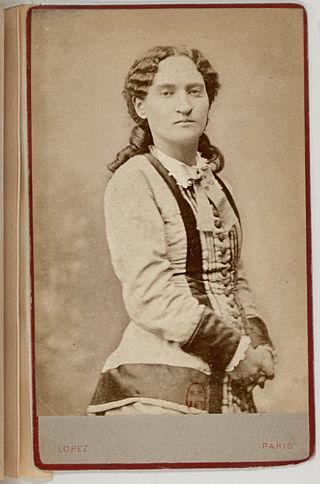
Paule Mink was a French feminist and socialist revolutionary of Polish descent. She participated in the Paris Commune and in the First International. Her pseudonym is also sometimes spelled Minck.

David Macey was an English translator and intellectual historian of the French left. He translated around sixty books from French to English, and wrote biographical studies of Jacques Lacan, Michel Foucault and Frantz Fanon.

Kuproquo is a 1999 Canadian short comedy drama film, the fourth to be written and directed by Jean-François Rivard, about what happens when a six-year-old boy asks an awkward question at the dinner table and his parents struggle to come up with an answer. The short has won several international prizes.
















